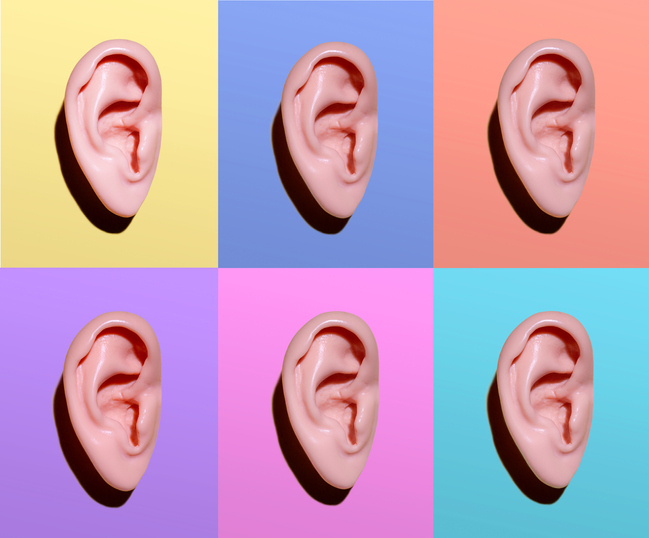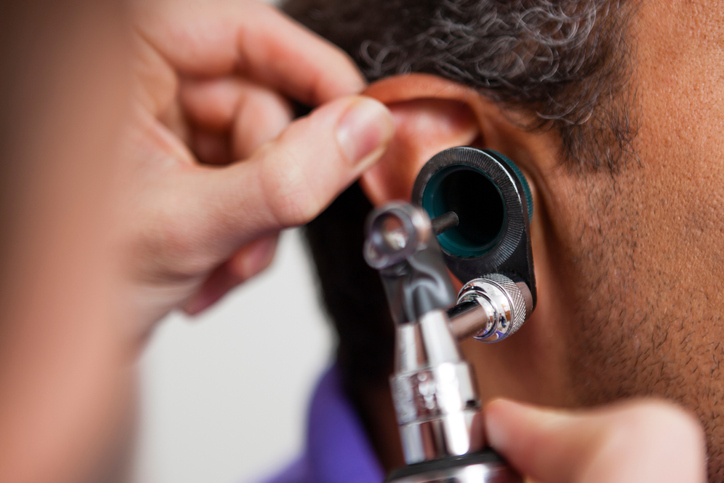Hear Us Out About Hearing Loss

By Joy Stephenson-Laws, J.D., Founder
I always joke that my hearing is way too good. For example, I swear I can hear a pin drop to the floor in my sleep. Any slight sound will wake me up! The truth, however, is I am very grateful for my healthy hearing.
We all have five basic senses -- sight, smell, taste, touch and hearing. And if you’ve never had any major issues with these senses, you most likely have taken them for granted. In other words, you don’t really know how precious these senses are until you lose one!
“Age-related hearing loss (presbycusis) is the loss of hearing that gradually occurs in most of us as we grow older. It is one of the most common conditions affecting older and elderly adults,” according to the National Institute on Deafness and Other Communication Disorders (NIDCD).
“Approximately one in three people in the United States between the ages of 65 and 74 has hearing loss, and nearly half of those older than 75 have difficulty hearing.”
It is also not uncommon for people to have hearing loss and not even notice it. Many people get routine annual physicals and eye exams. But very few get their ears examined. I don’t see the harm in people being more aware of hearing loss and getting their ears examined. A recent Medical Xpress report discusses how the U.S. Preventive Services Task Force (USPSTF) “...concludes that current evidence is inadequate for assessing the balance of benefits and harms of hearing loss screening for older adults.”

For example, “In one randomized controlled trial involving 2,305 veterans, screening for hearing loss was not associated with improvements in hearing-related function at one year.”
Furthermore, one of the members of the USPSTF said, "Although we found that screening tests can detect hearing loss, we don't have clear evidence about whether or not it's helpful to identify hearing loss in people who have not reported hearing issues."
I’m not suggesting that you should go by the motto: If you don’t notice a problem, there is no problem. There are plenty of people who have diabetes or heart disease and don’t know it, because they are not experiencing symptoms. These findings are just suggesting that screening for hearing loss does not necessarily improve the outcome of having hearing loss for certain people.
What we do know is that nutrition, as always, is key.One NIH report says that following a healthy diet has been linked to a lower risk of hearing loss in women (for example). Women who ate more fruits, vegetables, nuts, whole grains, legumes, olive oil, fish and lean meats had a reduced risk of impaired hearing.
“Interestingly, we observed that those following an overall healthy diet had a lower risk of moderate or worse hearing loss,” said one of the doctors on the study.
There are also specific nutrients that may help with hearing:
- Potassium. Helps regulate fluid in your inner ear. With age, potassium levels tend to drop which may contribute to age-related hearing loss.
- Folic Acid. Promotes new cell growth and circulation. These things are important for maintaining the health of the tiny hair cells in the inner ear.
- Magnesium. “Research shows that peoples treated with magnesium in conjunction with Vitamins A, C, and E were protected when exposed to high levels of noise. It’s believed that the magnesium acted as a protective barrier to hair cells in the inner ear when loud noises were emitted. And lack of magnesium has been shown to shrink blood vessels in the inner ear, causing oxygen deprivation.
- Zinc. Helps the body fight off infection. And some infections, like meningitis, may cause hearing loss. Zinc also promotes cell growth.
- Vitamin D. Cochlear deafness, which is another term for sensorineural hearing loss, has been connected to vitamin D deficiency, according to the NIH.
- Omega 3 Fats. These healthy fats are found in fish such as salmon and trout. Research from the NIH “showed that dietary intervention with omega-3 FAs may be useful in preventing or delaying the development of A-RHL [age-related hearing loss]. These benefits may be related to the ability of polyunsaturated fatty acids to promote healthy auditory function through the maintenance of adequate vascular supply to the cochlea.”
Now that you know how to protect your precious ears and hearing, go ahead and take a comprehensive nutrient test. Maintaining nutritional balance helps prevent all types of health issues, and it appears that making sure you have all the right nutrients in the right amounts may also help prevent hearing loss. You want to determine if you have too much or too little of any nutrient. A nutrient test is one way to determine this. If you have deficiencies, you can work with a competent healthcare professional to tweak your diet and/or take quality supplements.
It is also highly advised to avoid listening to very loud music, as this may also contribute to hearing loss over time.
Enjoy your healthy life!
Disclaimer: This article is not intended to provide medical advice. Please consult with your doctor or another competent healthcare practitioner to get specific medical advice for your situation.
The pH professional health care team includes recognized experts from a variety of health care and related disciplines, including physicians, attorneys, nutritionists, nurses and certified fitness instructors. This team also includes the members of the pH Medical Advisory Board, which constantly monitors all pH programs, products and services. To learn more about the pH Medical Advisory Board, click here.







